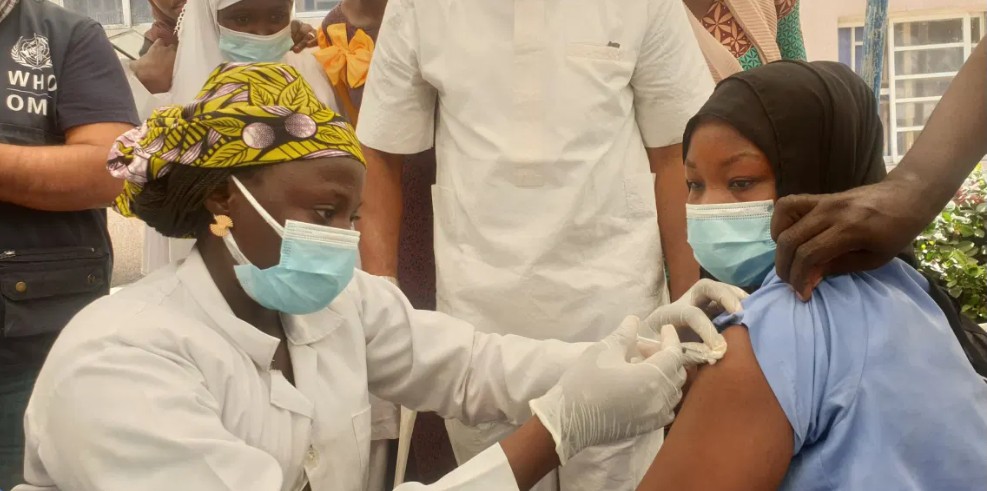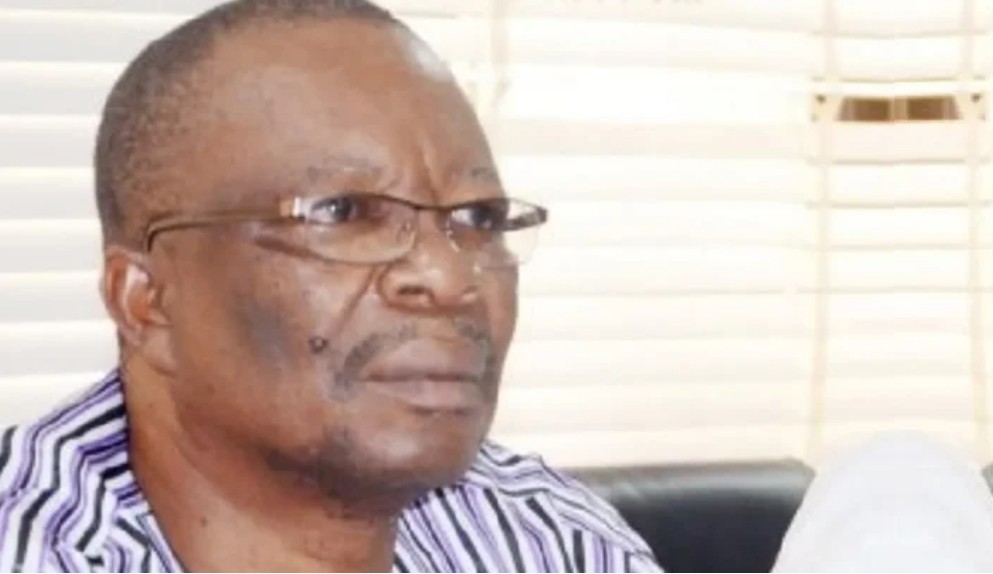Home > News > Deep in debt: Worries over Nigeria�...
Deep in debt: Worries over Nigeria’s borrowing spree
By AnchorNews | 15 Oct, 2023 10:33:48am | 44

Nigeria’s debt burden has been described as unsustainable, but this has not stopped the country from borrowing further, OKECHUWKU NNODIM writes
The decision of the Federal Government to continue borrowing funds amid the rising and unsustainable debt burden of the country is raising concern among financial experts and other stakeholders.
Nigeria’s total public debt, according to the country’s Debt Management Office, rose to N87.38tn at the end of the second quarter of this year. This represents an increase of 75.29 per cent or N37.53tn when compared to the N49.85tn recorded at the end of March 2023.
Data from the DMO further shows that Nigeria’s total domestic debt is N54.13tn, while its total external debt is N33.25tn. The domestic debt makes up 61.95 per cent of the total debt, while the external makes up 38.05 per cent.
In its 2022 Debt Sustainability Analysis Report, the DMO warned that the Federal Government’s projected revenue of N10tn for 2023 could not support fresh borrowings.
According to the office, the projected government’s debt service-to-revenue ratio of 73.5 per cent for this year is high and a threat to debt sustainability. It noted that the government’s current revenue profile could not support higher levels of borrowing.
“Of course, this is true, the debt burden of Nigeria is clearly unsustainable right now and the government needs to slow down on borrowing,” the Chief Executive Officer, Centre for the Promotion of Private Enterprise, Dr Muda Yusuf, stated.
But despite the concerns raised by the DMO and analysts concerning the country’s debt, Sunday PUNCH reported early this month (October) that the Federal Government was currently engaging the World Bank on a fresh $1.5bn loan.
The report stated that the loan, abbreviated as HOPE, was titled ‘Nigeria Human Capital for Opportunities and Empowerment,’ as this was based on information obtained from the website of the Washington-based institution.
It stated that the objective of the loan was “to strengthen systems for improved delivery of basic education and primary health services in participating states.”
The loan is meant to be implemented in 2024 pending approval by the board of the World Bank Group. The report also stated that there was another loan titled, ‘Nigeria Macro-Fiscal Reforms for Economic Stability and Economic Transformation’.
It stated that there were also pending discussions on five other loan projects. These include $300m for solutions for internally displaced persons and host communities project, $500m for rural access and agricultural marketing project-scale up, $750m for Nigeria distributed access through renewable energy scale-up project, $700m for sustainable power and irrigation for Nigeria project, and $500m for NG accelerating resource mobilisation for reforms PforR.
The discussions will determine if the loans will become active or dropped. The report further stated that so far, Nigeria had secured a total of $1.95bn in loans from the World Bank in the first four months of President Bola Tinubu’s administration.
The first was the $750m approved on June 9, 2023, to boost Nigeria’s power sector. The second was $500m to help the country’s drive for women’s empowerment and was approved on June 22, 2023. The third was a $700m loan to enhance adolescent girls’ learning and empowerment, which was approved on September 21, 2023.
Commenting further on the development, Yusuf said, “We cannot continue like this. Our debt level has reached a point now that is clearly unsustainable. You know our debt profile now is over N87tn, and the DMO has added the Ways and Means advances that were securitised. So, the thing has jumped to over N87tn.
“And the debt service burden is still extremely heavy; almost 100 per cent of our revenue. So, the debt situation is extremely bad. Therefore, this is not the time to borrow for projects that cannot significantly add value to productivity.”
Yusuf pointed out that the administration of former President Muhammadu Buhari negotiated some loans with the World Bank before he left office. He, however, stated that if the current government must borrow, it should not be for servicing recurrent expenditures, but must be targeted on capital projects that would attract income.
“Personally I don’t think this is the right time to be borrowing that kind of money (the $1.5bn loan). We need to be very careful about the way we go about borrowing, given the enormity of the debt service burden, the current size of our debt, and our very limited capacity to service both domestic and external debts.
“If we must borrow, it should be something that can support real productivity in the economy. I’m not saying education is not important, but we should be looking at more structural issues. You are dealing with an infrastructure deficit and a problem of logistics, these things make productivity to be extremely low, thereby affecting the competitiveness of our economy. So, they are much more fundamental,” the CPPE boss stated.
On Ways and Means financing of fiscal deficit, he said, “Ways and Means finances of the Central Bank of Nigeria must be kept within statutory limits to avoid the damaging impacts of high-powered money on the macroeconomic environment. The experience of the last few years must not be allowed to repeat itself.”
Also commenting on the issue, a former President of the Association of National Accountants of Nigeria, Dr Sam Nzekwe, wondered how the government would be able to raise funds to pay the additional N35,000 that it promised civil servants.
“The Tinubu government has not settled down to actually see the direction the economy is going. They have promised to pay an additional N35,000 to each civil servant. But the question is where will they get the money? That announcement has no backing of any appropriation. So, one may think that maybe they will come up with an appropriation to cover that. Several other pronouncements had been made as well, without any appropriation backing them.
“Now all these things require money, but where are they going to get money to finance them? Is it by borrowing? If you borrow to finance all these things, it means you are now financing recurrent expenditure, which is too bad because it is not taking us anywhere,” Nzekwe stated.
The former ANAN president stated that though he was not totally against the act of borrowing by the government when such funds were acquired, they should be deployed into capital projects.
“I am not totally against borrowing, but it should be for capital development. Is it to finance roads, infrastructure, or which capital project? But if the money goes to recurrent expenditure, then it is too bad,” he stated.
On his part, the Secretary of the Independent Petroleum Marketers Association of Nigeria, Abuja-Suleja, Mohammed Shuaibu, said the government would have reduced its borrowings had it been Nigeria’s refineries were working.
“Recently, the NNPCL said it secured a $3bn loan to help the local currency and boost activities in the oil sector. There wouldn’t be a need for such a level of borrowing if our refineries were working. The government should work hard to get our refineries working. It will save Nigeria a lot of funds. It will reduce the pressure on our forex. It will create jobs and guarantee the supply of refined products. Marketers will stop chasing dollars for imports.
“The gains are enormous. So, if they really want to reduce the level at which they go about borrowing billions of dollars, one sure way to help in doing that is by ensuring that our refineries are brought back on stream fast,” Shuaibu stated.
He said it was high time the Federal Government realised that the huge foreign exchange expended in importing refined petroleum products was not only depleting the country’s forex but was affecting revenues accruable to both investors and the government.
“So as we strive to cut down on our excessive borrowing as a country, we must also strive to reduce the amount of forex that we send out to other nations through the imports of petroleum products,” the IPMAN official stated.
Also commenting on the matter, the National Public Relations Officer, IPMAN, Chief Chinedu Ukadike, said the inability of the government to tackle some key challenges in the oil sector had impacted negatively on the country’s earnings.
This, he said, also contributed to the continued borrowing of funds by the government, stressing that these challenges should be tackled to help improve the government’s finances.
“Had it been our oil industry is doing well and supplying the required revenue, I don’t think the government would be borrowing that much. We import refined petroleum products and spend billions of dollars on them when we have refineries.
“I remember that in one of my interviews, I encouraged the President to declare a state of emergency in the refineries, so as to ensure that our four refineries in Nigeria begin to work. Nigeria is heavily dependent on the importation of petroleum products.
“You will also agree with me that petroleum products drive the economic activities of this country and any little increase in petroleum product prices leads to galloping inflation, which ultimately affects domestic production and the prices of goods,” he stated.
Ukadike added, “Nigeria has spent trillions of naira on subsidy, billions of naira on logistics, etc. It is very unfortunate that up till now, we’ve not been able to deliver at least one refinery. So, why won’t the government borrow, when we spend trillions importing petroleum products?”
He, however, urged the government to fix the challenges in the oil sector, as this would help to shore up revenue and lead to a reduction in borrowing by Nigeria.
“In the domestic distribution of petroleum products, we’ve lost all the pipelines. We lost those along the waterways; we lost those in the hinterland. It is becoming increasingly difficult for Nigeria to meet its crude oil production quota, which is due to the vandalism of pipelines.
“When you come internally, all our 21 depots are networked to our refineries. We have lines that pump products from refineries to various depots. The way it was designed, pipelines are supposed to send products from the Port Harcourt refinery even up to Makurdi. But now, all those pipelines are obsolete.
“Many of them cannot even pump up to 3km, while these are pipelines that are supposed to supply petroleum products to between 400 and 500km. But right now, they cannot supply to 1km even within the radius of the refineries because of lack of production. All these should be fixed to help increase revenue to both government and private businesses,” Ukadike stated.
Meanwhile, the CPPE boss pointed out that the volatility in the foreign exchange market had been naturally unsettling and had an impact on the challenges that contributed to increased borrowing by the government.
“But it is not unexpected, given the long period of distortions in the foreign exchange market. Correcting the entrenched distortions would take some time. But in the meantime, the monetary authorities should come up with a sustainable intervention framework to ensure the moderation of current volatility in the forex market.
“We recognise the forex supply limitations, but the system needs to be managed in a way that it will not undermine investors’ confidence. The erosion of confidence triggers speculation and influences expectations which in turn trigger diverse responses among economic players,” Yusuf stated.
However, considering the various economic policies of the government, only time will tell if it will begin to realise that embarking on borrowing will do the country more harm than good. Again, the leadership should also take cognizance of the fact that borrowing to address recurrent expenditure remains harmful to any economy.
PUNCH

Leave a Reply
Your email address will not be published. Required fields are marked *
Category
 Sports
Sports  Business & Economy
Business & Economy Entertainment
Entertainment.jpeg) Interviews
Interviews Religion
Religion  Opinion
Opinion Culture & Tourism
Culture & Tourism Politics
Politics Technology
Technology Crime & Security
Crime & Security Education
Education  News
News Health
Health